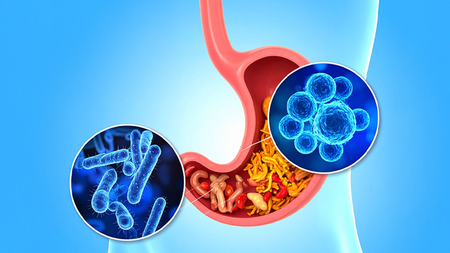
New Delhi – A healthy gut could be the key to improving mental health conditions such as depression and anxiety, which together affect nearly one in seven people worldwide, according to a new study.
Researchers at the University of South Australia have uncovered compelling evidence linking gut health to brain function, suggesting that the gut microbiome—trillions of microorganisms living in the digestive system—plays a direct role in mental wellbeing. Their findings were published in Nature Mental Health.
“The gut–brain connection is one of the most exciting frontiers in mental health research,” said lead author Srinivas Kamath, a doctoral researcher at the university. “We already know that the microbes in our gut communicate with the brain through chemical and neural pathways, influencing mood, stress, and cognition. The real question has been whether changes in gut bacteria cause mental illness or simply reflect it.”
The study reviewed existing research and found strong evidence that gut microbes can alter brain chemistry, stress responses, and behavior in animal models. It also noted that individuals with depression and schizophrenia often show disrupted gut microbiome patterns.
Preliminary trials involving probiotics, dietary interventions, and even faecal microbiota transplants have shown promise in improving mood and anxiety levels. Conversely, some psychiatric medications were found to influence the composition of gut bacteria—further underscoring the bidirectional gut-brain link.
Globally, mental health disorders affect around 970 million people, with depression and anxiety among the top causes of disability. Alarmingly, nearly one-third of patients fail to respond to current treatments, highlighting the need for innovative and accessible approaches.
“If we can demonstrate that gut bacteria directly contribute to mental illness, it could revolutionize how we diagnose, treat, and even prevent these conditions,” said Dr. Paul Joyce, a co-researcher on the study. “Microbiome-based therapies—such as probiotics, prebiotics, or customized diets—could become low-cost, safe, and culturally adaptable alternatives to conventional treatments.”
The researchers urged further long-term studies involving larger and more diverse populations to better understand how factors like diet, environment, and culture shape the gut-brain connection.
With inputs from IANS